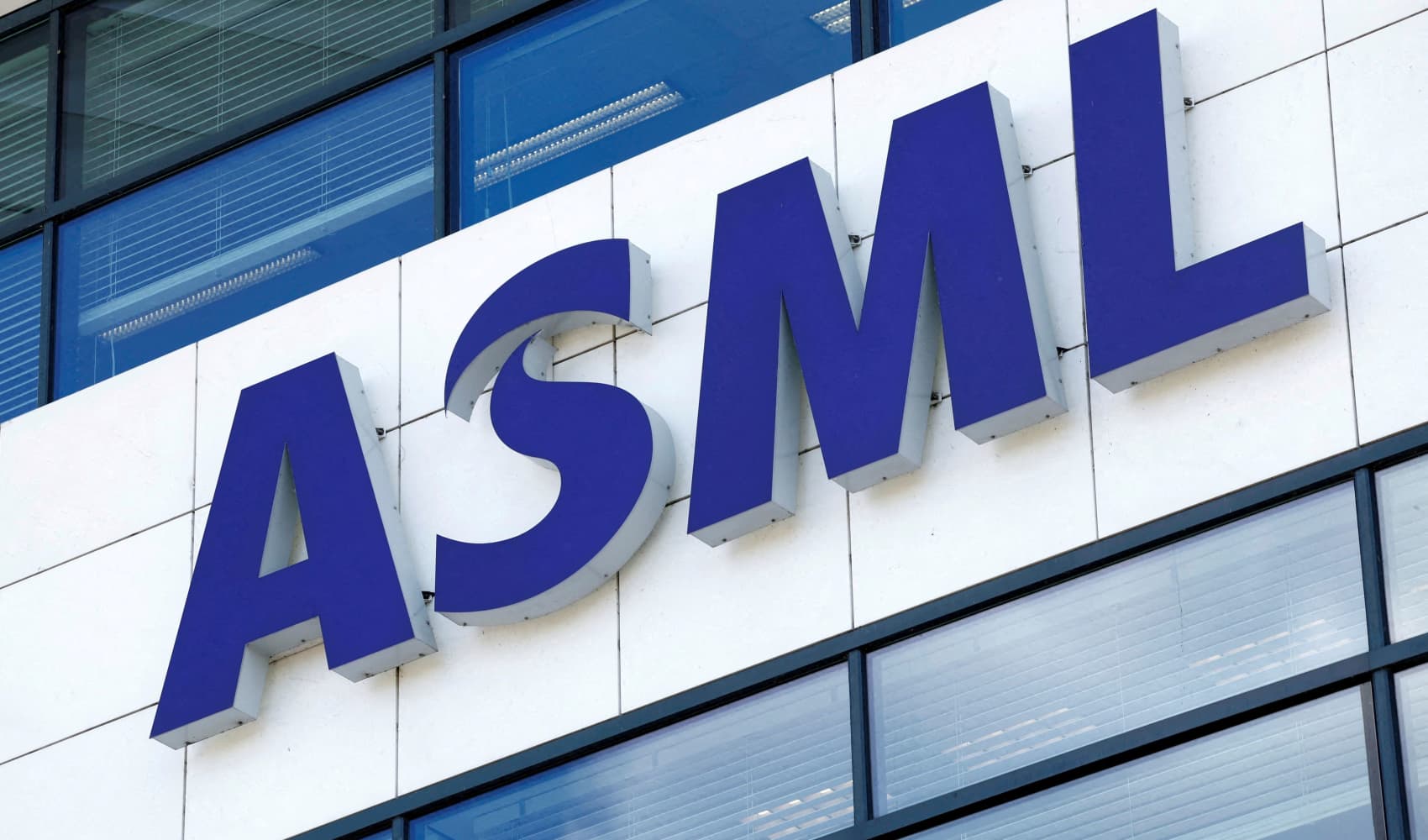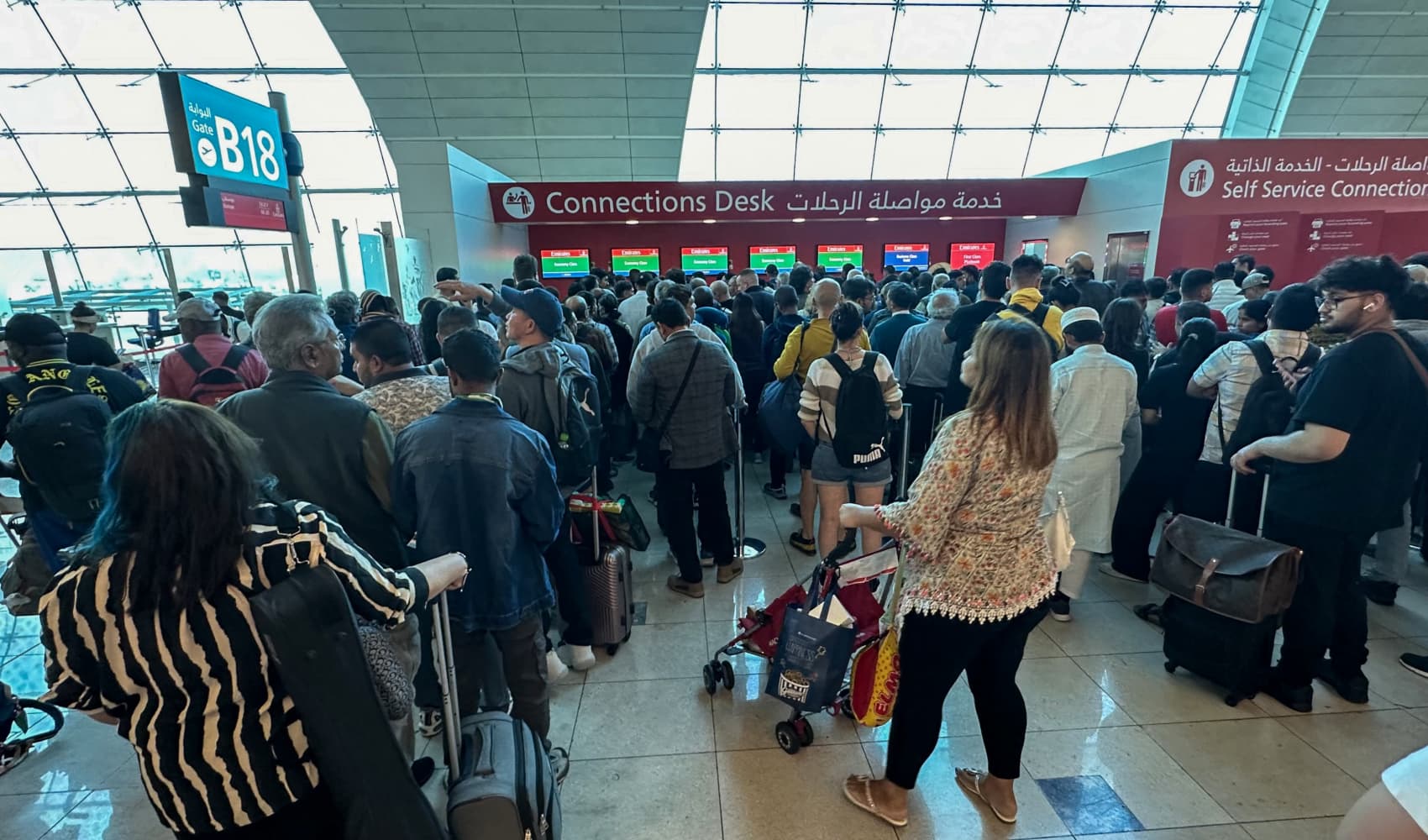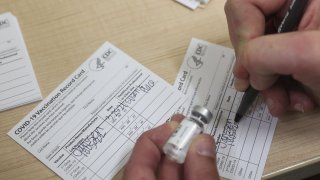
- When it comes to vaccinations, the coronavirus doesn't see or respect party lines.
- The concept of a vaccine passport pushes nearly every partisan political button for Republicans who already don't trust their political leaders and fear government overreach.
- If you want everyone vaccinated and life to go back to normal, it starts with using the right language. A vaccine "verification" is preferred to a passport by every population subgroup — all of them.
Why are politicians so good at crafting language to get themselves elected, and so bad at communicating simple policies to keep their constituents safe and alive?
When President Joe Biden took office, he promised 100 million shots in arms within his first 100 days. Last week, the Biden administration reached its goal — 42 days early, no less — and raised the bar to 200 million. He deserves significant credit for turbo-charging the vaccine effort, as does the Trump administration for making safe, effective vaccines available so quickly. For once, a bipartisan success.
But politicization of the virus and ineffective communication in support of the vaccines once again threatens the nation's health. This time, it's over the poorly named, so-called vaccine passports.
Get San Diego local news, weather forecasts, sports and lifestyle stories to your inbox. Sign up for NBC San Diego newsletters.
When it comes to vaccinations, the coronavirus doesn't see or respect party lines. We are all on the same side, and we all need 85% to be vaccinated and to move on with our lives. If we fail in this task, no one wins, the virus proliferates, our freedoms are curtailed, and more people become sick and die.
Let's not mince words anymore. This nationwide public health crisis was politicized, and partisan divides contributed to the loss of American lives. That is a fact. And mistakes in messaging continue to plague the vaccine rollout within certain communities. The question before us is whether we can rise to the challenge right now, put aside the "I told you so's," and move forward intelligently as well as truly united.
The national conversation about vaccine passports has shown that we have learned little from messaging missteps of the past year. When the pandemic began, one side fumed over the threats of prolonged economic closures while the other side bristled when challenged to defend human "lockdowns." Democrats weaponized science, Republicans weaponized freedom, and partisanship became a contributing cause of death to more than half a million Americans.
Money Report
Enough already.
To keep the nation's vaccination discussion focused on medical facts — and not politics — we and others have specifically explored the origins of vaccine concern among Black Americans, LatinX, Republicans, rural voters, and others. Today, Republicans remain the group with the greatest levels of vaccine concern.
But a recent focus group and poll we conducted has taught us there are ways to build vaccine confidence among this population. It will take de-politicized communications — which we have not seen from the Biden White House so far — to provide concerned Republicans with the information they need to make an informed decision and overcome their reluctance to get vaccinated.
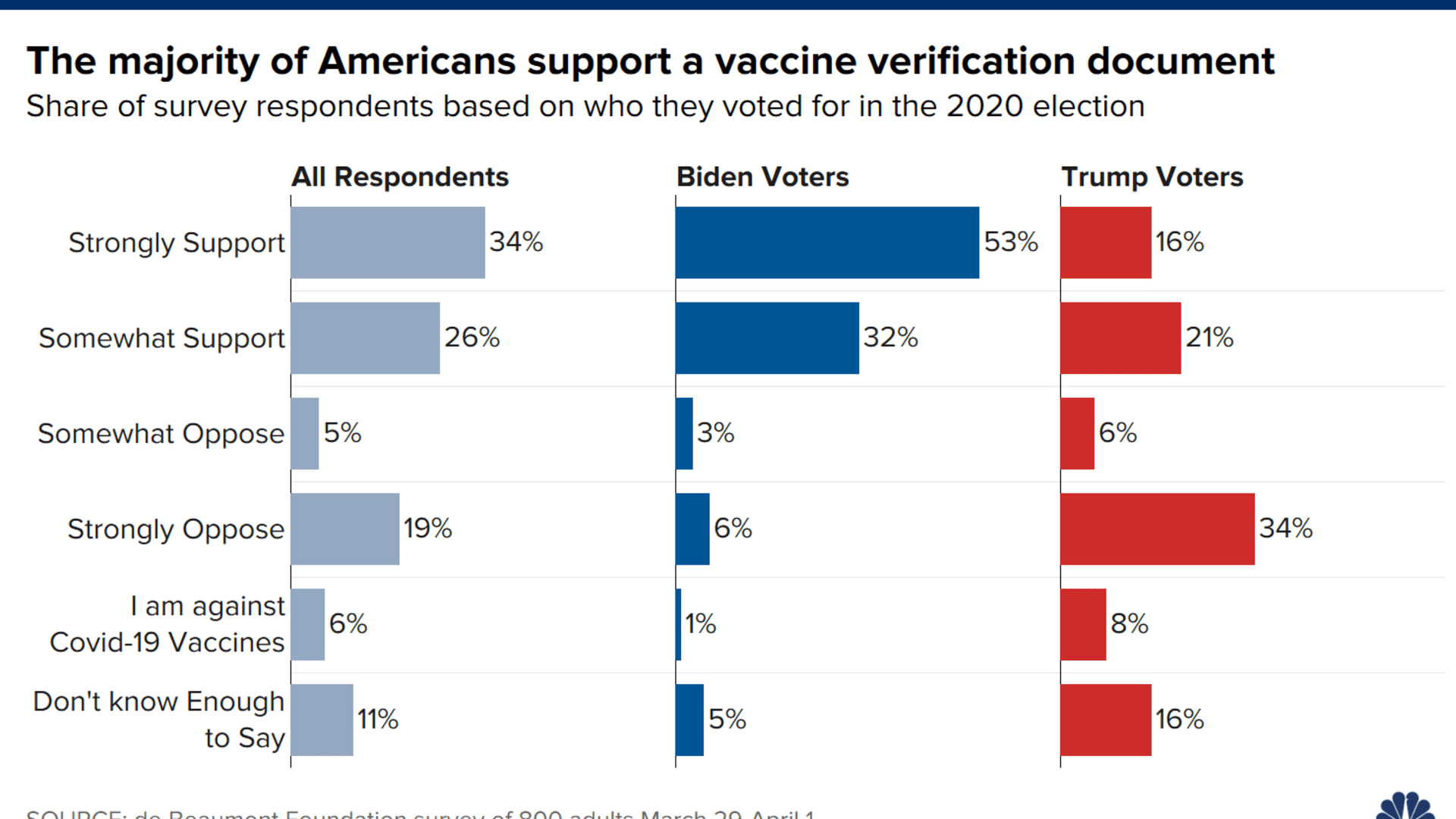
Returning to travel is certainly a post-Covid priority of millions of Americans, and it is clearly a vaccine motivator. The Biden administration's recent decision to rule out vaccine passports at the federal level is a good one. On Tuesday, White House press secretary Jen Psaki said, "There will be no federal vaccinations database and no federal mandate requiring everyone to obtain a single vaccination credential."
The concept of a vaccine passport pushes nearly every partisan political button for Republicans who already don't trust their political leaders and fear government overreach. To them, it's a threat to the choice and freedom of those who may choose not to get vaccinated. The response from the political right should not be surprising, when it came to a vaccine passport, 47% of Trump voters opposed them compared to 10% of Biden voters.

Make no mistake, there is a definitive need for some type of requirement for proof of vaccination — and the potential for widespread support if messaged correctly. Americans are asked to show proof of all sorts of things — from proof of insurance when pulled over by a police officer to documentation of vaccination when we send our children to school or summer camp. The problem here is that a vaccine passport is perceived as a potential federal government mandate that threatens our personal liberty. It doesn't have to be this way.
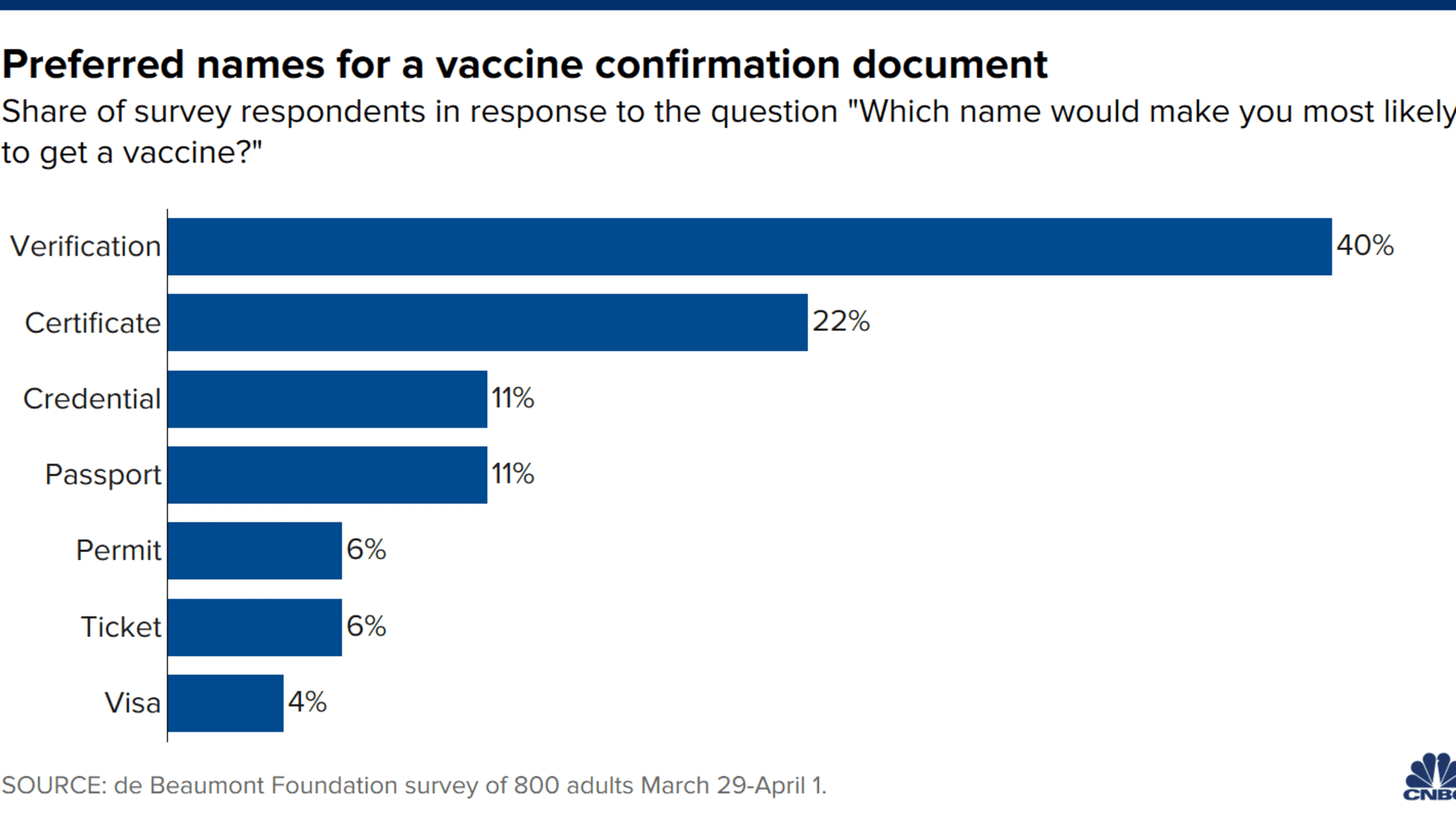
If you want everyone vaccinated and life to go back to normal, it starts with using the right language. A vaccine "verification" is preferred to a passport by every population subgroup — all of them. Why? Because it is a statement of fact, not a government-issued document. It simply communicates your status — nothing more. It is then up to you, and others around you, to decide what you do with it.
In ruling out a federally mandated vaccine passport, the Biden administration helped ease any potential equity issues that we're seeing in vaccine distribution. A vaccine passport is only available to those who can get a vaccine, which have been disproportionately given to white Americans. A mandated government vaccine passport would potentially deny travel and access to those who have suffered most from Covid-19. Conversely, a voluntary verification or even a certificate simply states the obvious: this person is safe to travel.
History books will mark our nation's politicization of Covid-19 as a leading cause of death for the more than half a million Americans. We cannot keep making the same mistakes, particularly as we approach the moment when all American adults can get vaccinated. Americans need accurate information and genuine freedom to make their own choices. Anything that distracts from that or morphs a medical decision into a political debate makes us less safe.
Brian Castrucci is an epidemiologist, public health practitioner and president and CEO of the de Beaumont Foundation. Frank Luntz is a Republican pollster and communication advisor.


